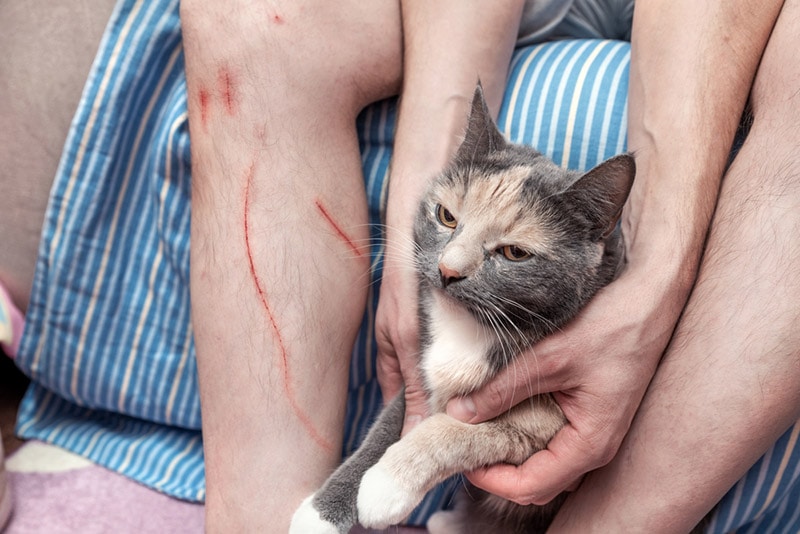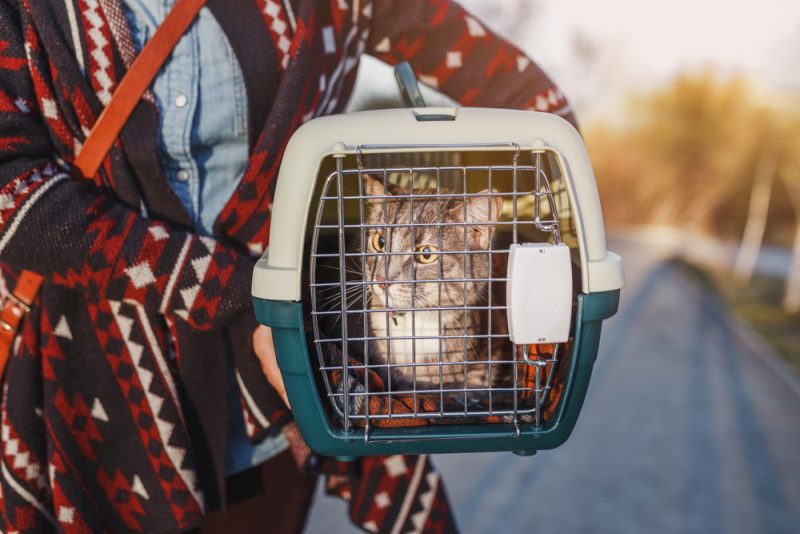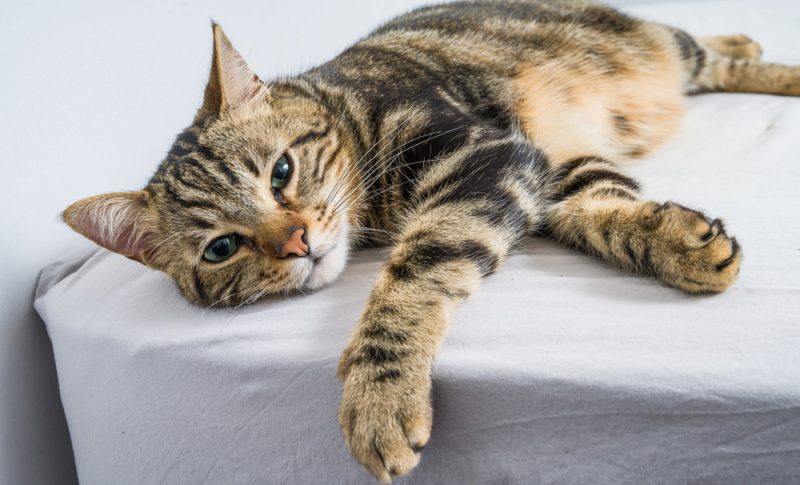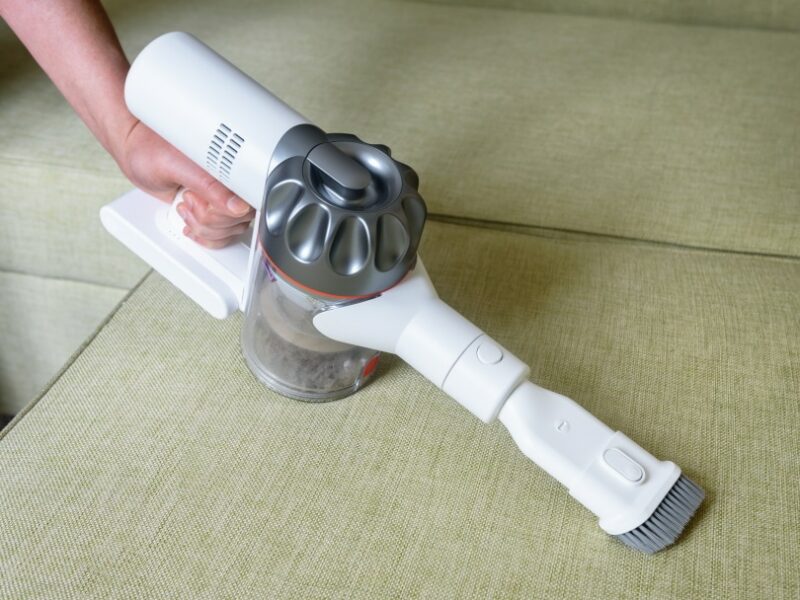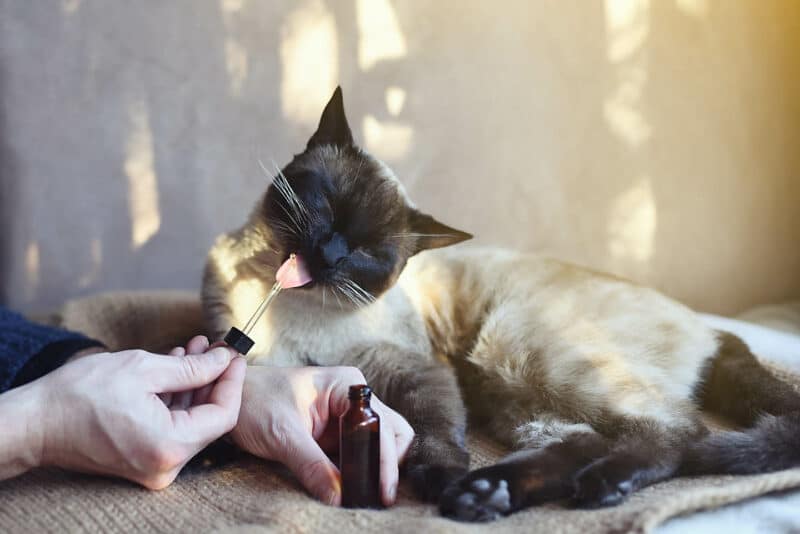Cat scratch fever, also known as cat scratch disease (CSD), occurs when a cat infected with Bartonella henselae bacteria bites someone, scratches them, or licks a cut or open wound. While most cats with the bacteria don’t show signs, the infection can occasionally cause problems in humans, ranging from skin infections to more severe problems such as fever, exhaustion, and swollen lymph nodes.
A person’s skin must be broken to become infected, and signs usually show up within 3 to 14 days. Below, we’ll shed some light on eight facts about CSD.

The 8 Facts About Cat Scratch Fever:
1. The Bacteria Is Relatively Common
About 30% of cats have the bacteria, which is more commonly found in kittens.1 It’s transmitted to cats from fleas. Cats can also become infected if they have open wounds that come into contact with flea droppings, also known as flea dirt.
When cats have fleas and scratch themselves to relieve itching, they can get flea dirt under their claws, which can be transferred to people who are scratched. Similarly, they can contract the bacteria during grooming, and ingestion of fleas or flea dirt.
2. Signs of Illness in Cats Are Rare
Although most cats infected with the bacteria do just fine, some develop signs such as a transient fever or mild anemia.
Cats with Bartonella henselae infections can also end up with problems in other places, such as their eyes and mouths. Enlarged lymph nodes, refusal to eat, and lethargy are sometimes seen.
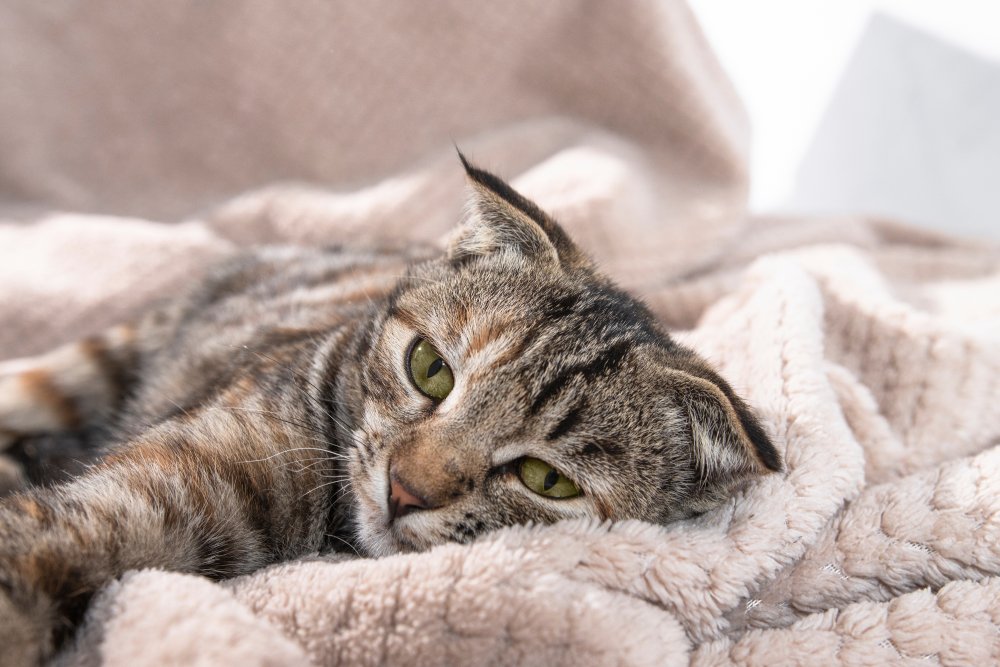
3. Serious Signs of Illness in People Are Rare
Although the bacteria can cause infections and swollen lymph nodes, serious problems are relatively rare in people. When complications occur, they can involve various organs, including the heart, brain, and eyes.
Problems don’t arise that frequently, but when they do, they tend to occur in people with weakened immune systems and children.
4. Flea Prevention Is Key
Because exposure to fleas is primarily how cats end up infected with the bacteria to begin with, keeping the parasites away from pets can go a long way toward reducing cats’ chances of becoming carriers.
Regularly vacuuming areas where pets like to hang out and washing their bedding at high temperatures can also help keep fleas away. You can talk to your veterinarian about which flea-prevention products are appropriate for your cat; treatments for dogs should never be used on cats as many contain a chemical that can make them very sick.
If you need to speak with a vet but can't get to one, head over to PangoVet. It's an online service where you can talk to a vet online and get the advice you need for your pet — all at an affordable price!

5. Nail Clipping and Hand Washing Are Critical
Keeping your cat’s nails short can make it harder for flea dirt to accumulate under their claws, which can reduce the chances of the bacteria being passed to humans during a scratching incident.
When cats scratch or bite, washing the area with hot, soapy water as quickly as possible can prevent the bacteria from finding a new home.
6. Keeping Cats Indoors Can Help
Keeping cats indoors may also decrease their likelihood of getting the bacteria. Indoor pets have lower chances of catching fleas because they generally have fewer opportunities to be exposed than those who are allowed to roam free.
They also typically get into fewer altercations with other animals, which lowers the risk of other diseases, as well. Indoor cats also tend to live longer lives than those who have access to the outdoors.

7. There’s No Vaccine Available
Unfortunately, researchers haven’t yet come up with a vaccine to prevent cats or people from catching CSD, so prevention and risk minimization are your best bets when it comes to avoiding it.
Humans can be tested for the infection relatively easily. Veterinarians diagnose the condition in cats based on clinical signs and information indicating a possible exposure, but DNA tests can be used.
8. Cats Aren’t the Only Sources of Human CSD Infections
There are cases of people developing CSD who haven’t been bitten or around cats. Other potential vectors of transmission include ticks, rabbits, and dogs. Humans are unlikely to end up infected due to flea bites.

Conclusion
CSD is an infection caused by Bartonella henselae bacteria. People can become ill after being bitten or scratched by a cat carrying the bacteria, which is transmitted through fleas.
Regular flea prevention can minimize the chance of cats ending up with the bacteria, and keeping them indoors can lower their risk of being exposed during fights with infected animals. Washing scratches and bites with hot, soapy water after playing with cats can reduce the likelihood of transmission to humans.
Featured Image Credit: Kobzev Dmitry, Shutterstock
